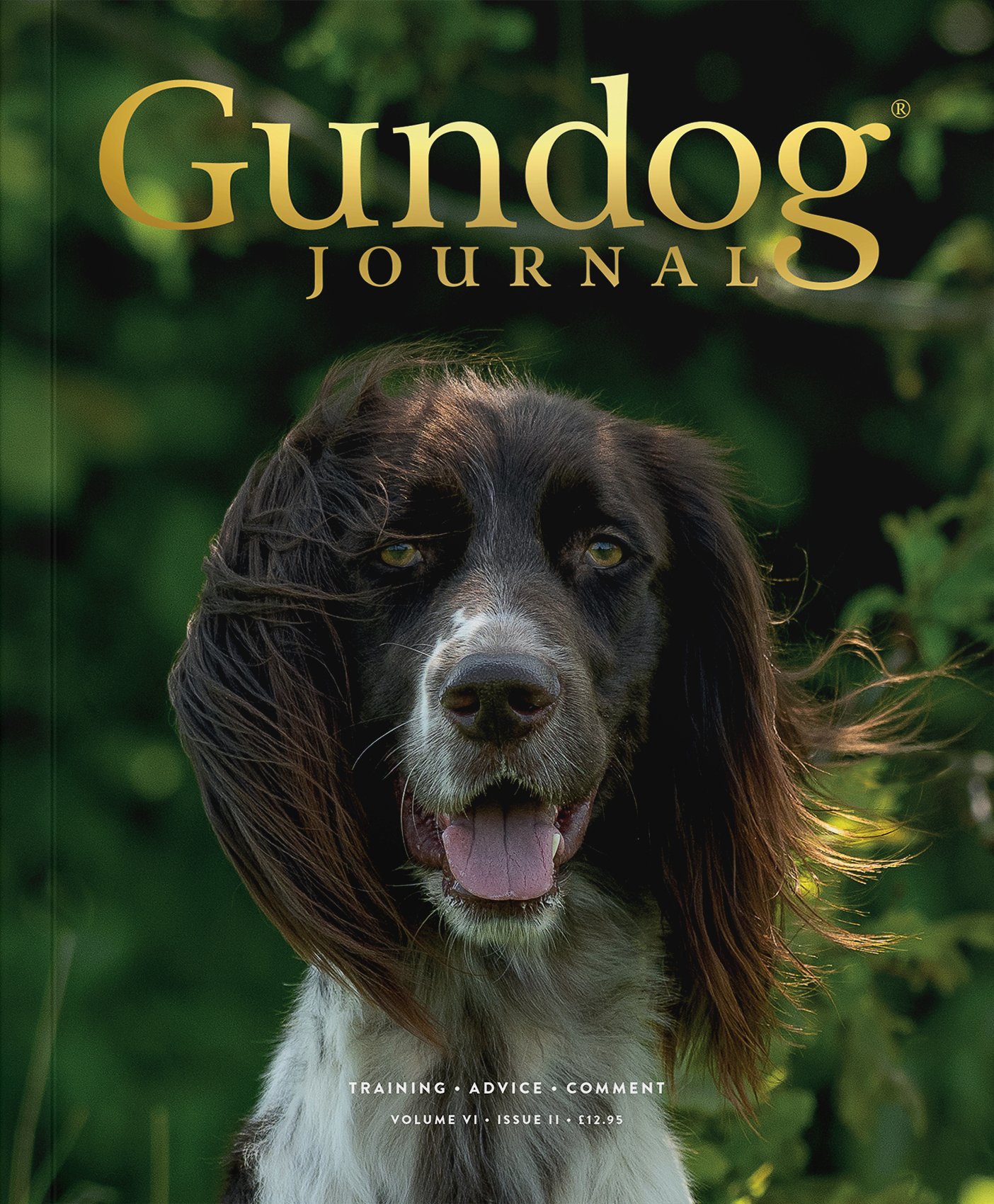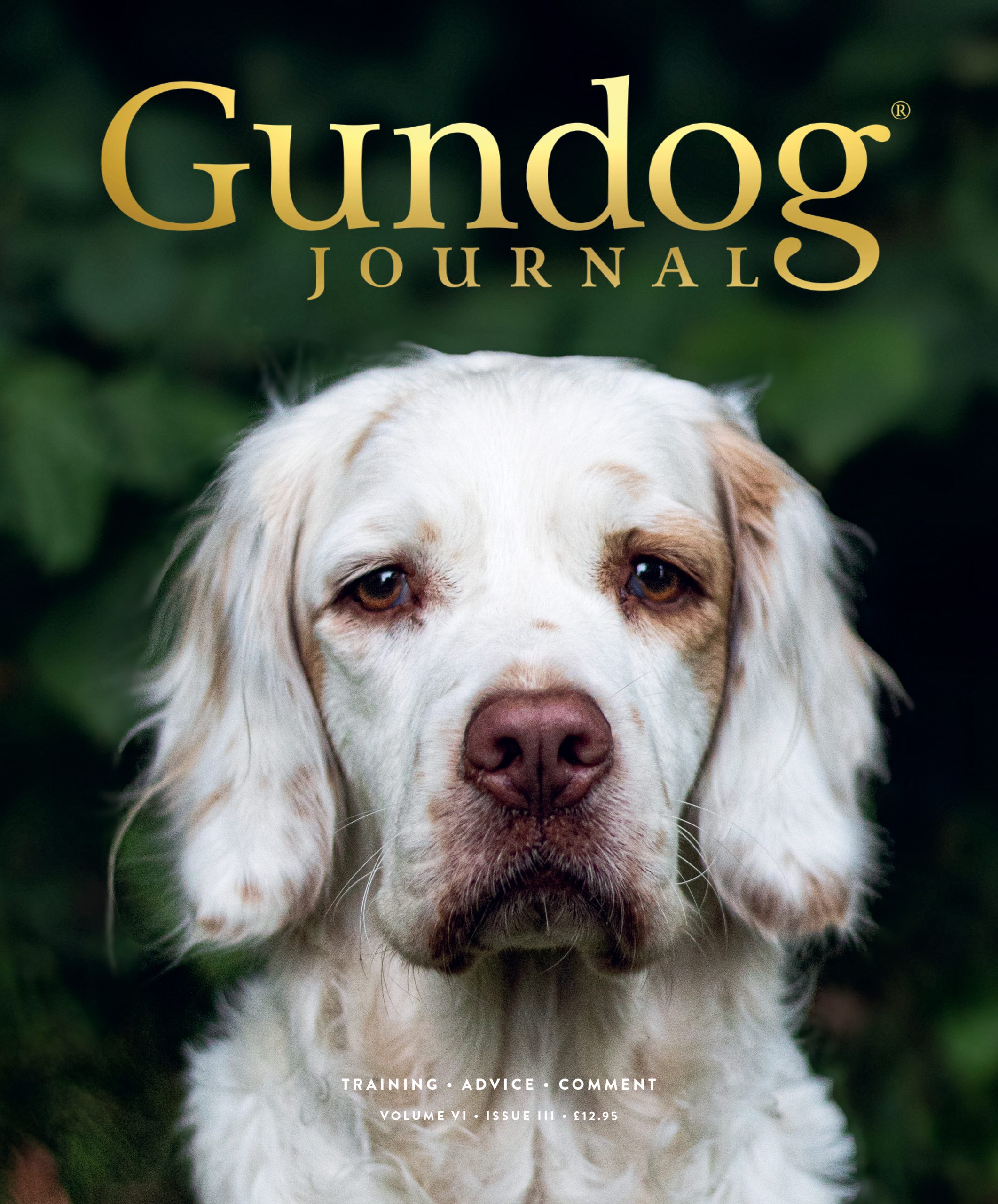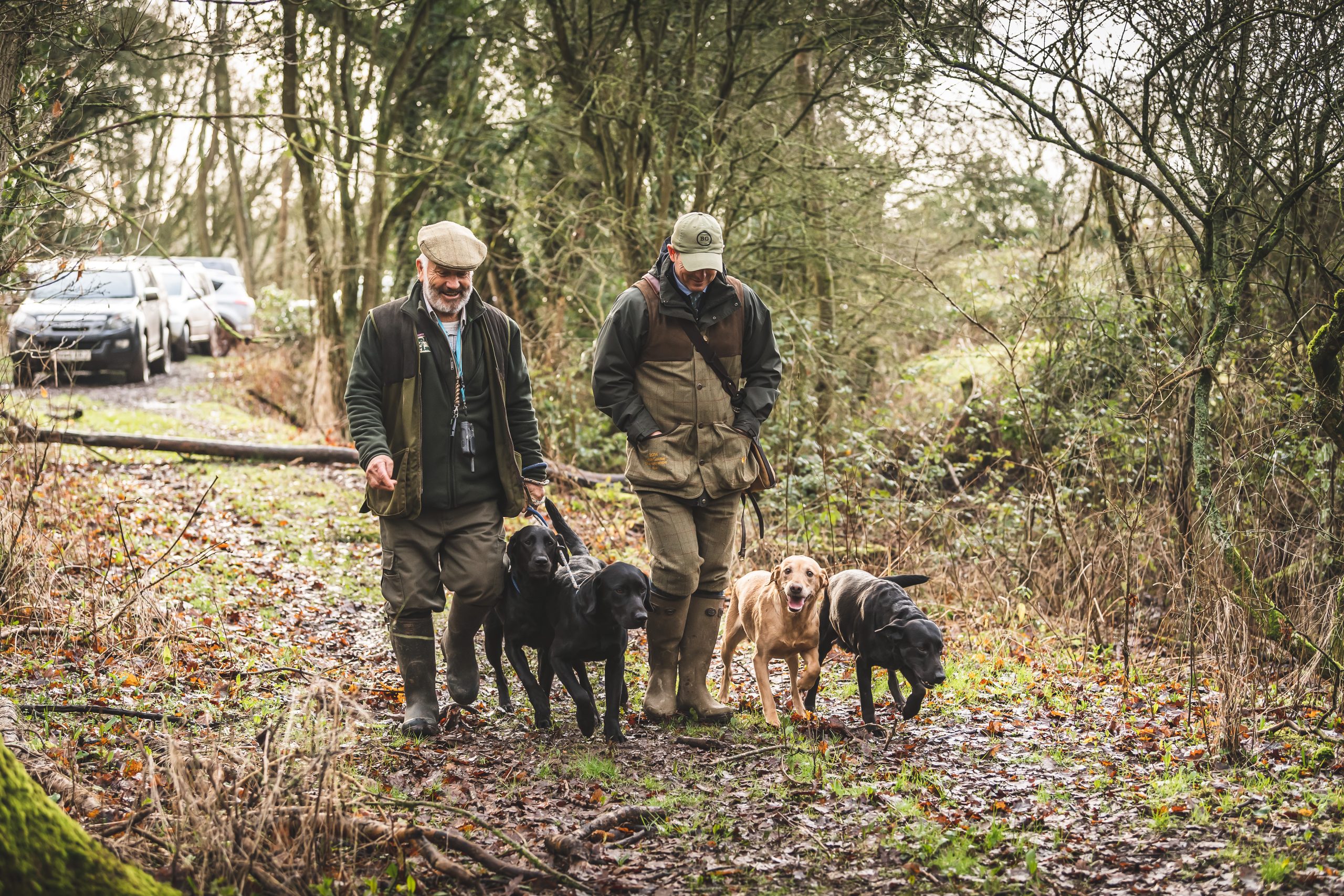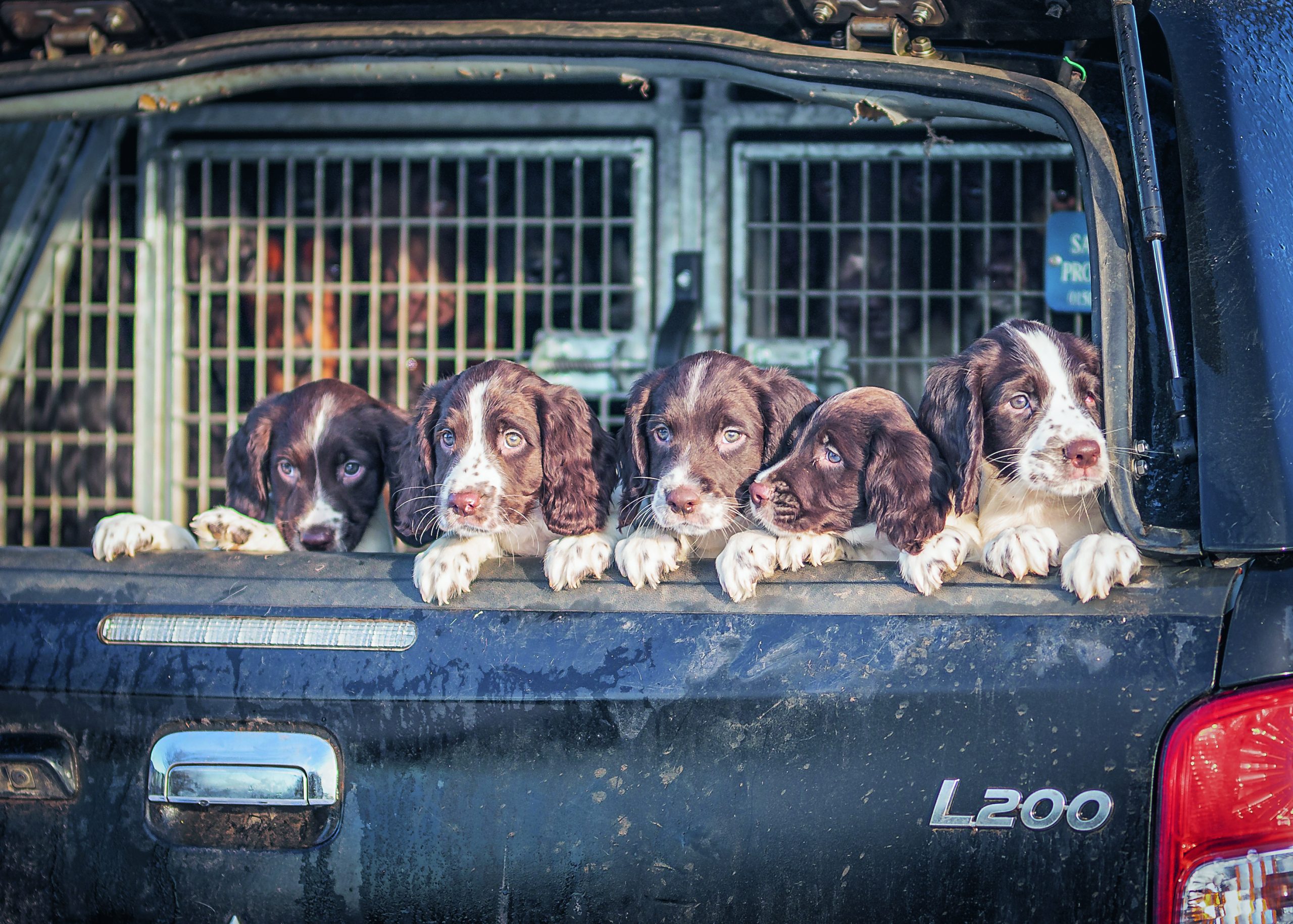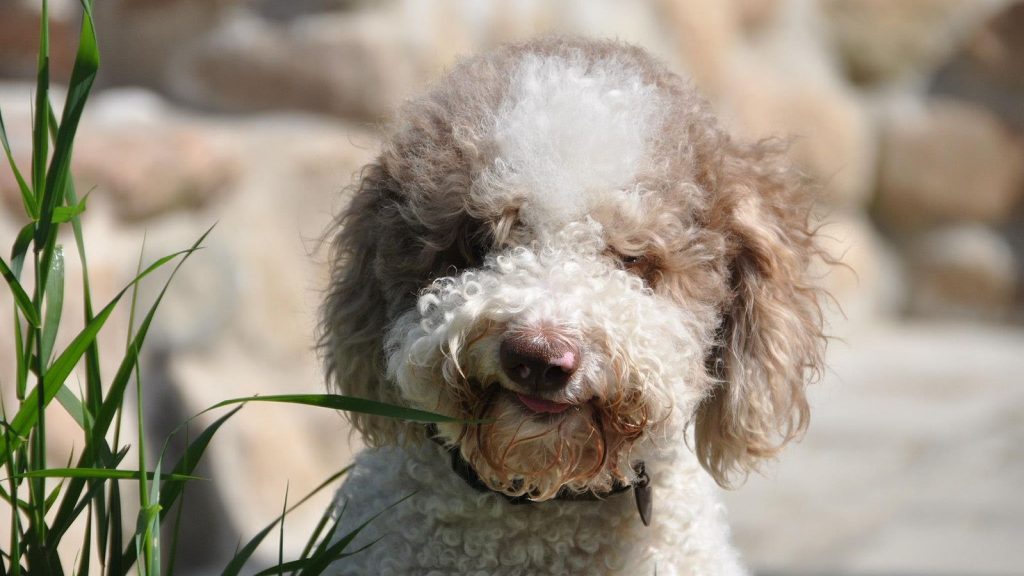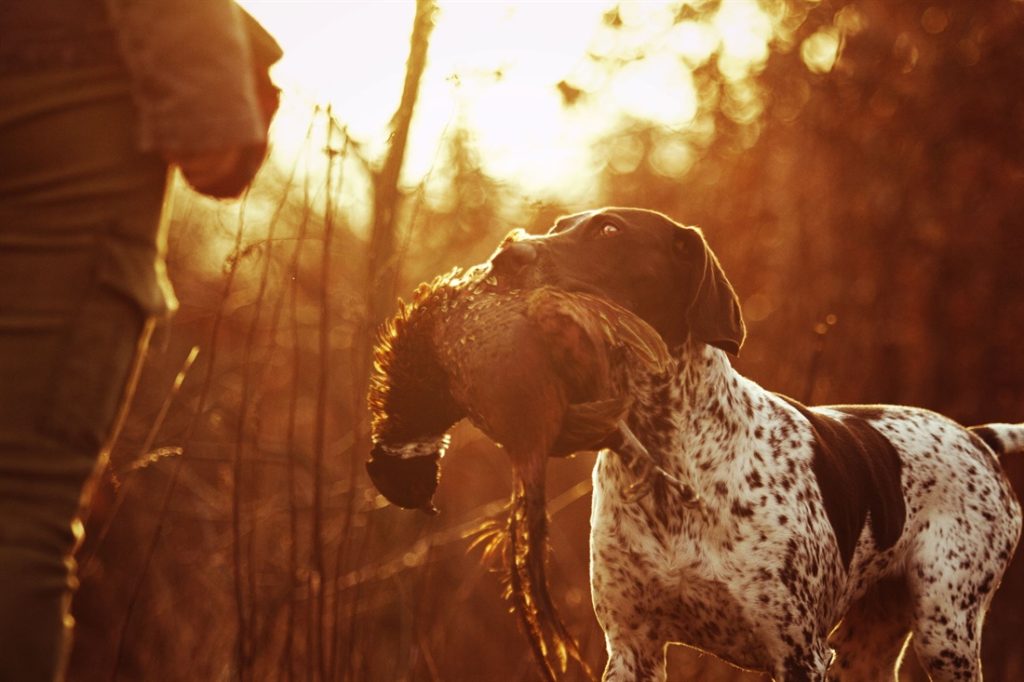Pointer
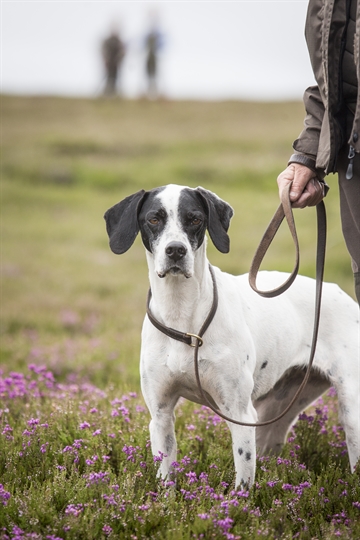
Pointers are among Britain’s most stylish gundogs, as they’re an athletic breed that combines speed and grace with high levels of stamina. The pointer dog is believed to descend from the Spanish pointer, which was crossed with the greyhound and foxhound breeds in the 1700s.
What Does A Pointer Dog Do?
Pointers have been bred for their hunting, pointing, and flushing skills. The pointer is a good hunting companion that’s especially skilled at locating birds.
In the UK, pointers are used to range widely over open land to hunt, point, and flush scarce game, particularly grouse and partridge. This breed can work for hours on end, grouse counting in the spring and summer, and it’s also shot over on stubble and in woodland.
Pointers are a kind, good-natured breed with a serious and reserved temperament. They can adapt well to life in kennels or the home, if introduced early to children and other pets.
These dogs can present some challenges in training, as their natural hunting instincts means they can be easily distracted by other sounds or smells.
What Do Pointer Dogs Look Like?
Pointer dogs have a distinctive head shape and silhouette with a concave muzzle, elevated nose, pronounced stop, and flashy stance at point. The sight of this breed in full sweeping gallop across the moors is a beautiful one of magic and drama.
Owning A Pointer: Pros And Cons
Pointer Pros
- Good-natured breed
- Good with children and other pets, if socialised early
- A good gundog
- Relatively low-maintenance in terms of grooming
Pointer Cons
- Has high energy levels, requiring over 2 hours of exercise per day
- May be a little too boisterous for young children
- Can be easily distracted in training due to natural hunting instincts
- May be at risk of some health conditions, including hip dysplasia, and dog eye conditions such as cataracts and progressive retinal atrophy (PRA)
Find out more about different pointer breeds, including the German wirehaired pointer, Portuguese pointer, and the Slovakian Rough-Haired Pointer.
Related Articles
Get the latest news delivered direct to your door
Subscribe to Gundog Journal
Unlock the full potential of your working dog with a subscription to Gundog Journal, the UK’s only dedicated magazine for gundog enthusiasts. Published bi-monthly, this authoritative resource delivers expert training advice, in-depth interviews with top trainers and veterinary guidance to help you nurture a stronger bond with your dog.
With stunning photography and thought-provoking content, Gundog Journal is your essential guide to understanding, training and celebrating your working dog.
Save 10% on shop price when you subscribe, with a choice of packages that work for you. Choose from Print & Digital or Digital only with each journal delivered directly to your door or via the app every other month, plus access to past issues with the digital back issue library.
